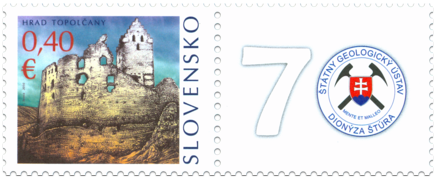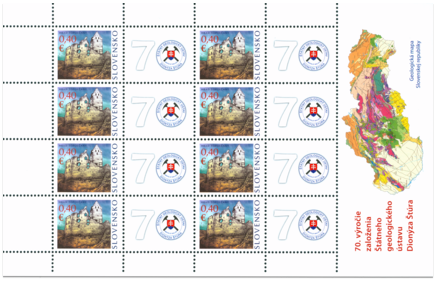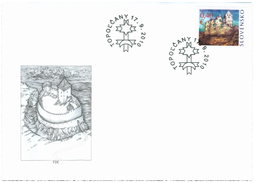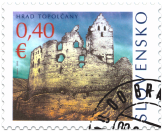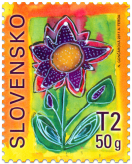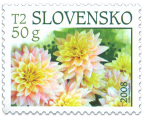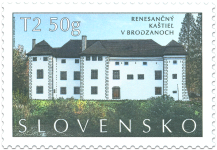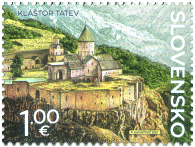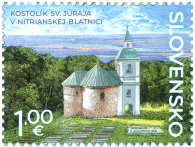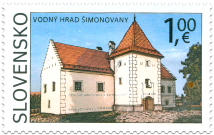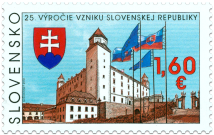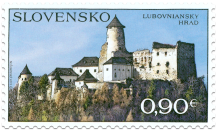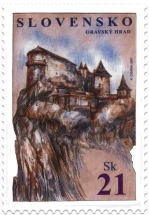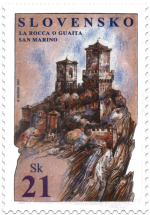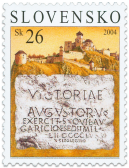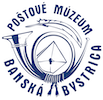480 Date of issue
17.09.2010 Face value
0.40 € Sell price
0.40 €
The castle ruins in Topoľčany do not belong to the most well-known monuments of the medieval architecture. One of the reasons could be the fact that besides building material, almost no specific architectural segments have been conserved. Nevertheless, the ruins were an extremely important example of castle defence works practically from the end of the 13th century until the 17th century. The ruins of Topoľčany castle, which are situated on the rock above the village Podhradie, consist of high residential tower surrounded by semicircular wall with well-preserved hoarding. A couple of years later this wall was enclosed by outer ward with arrow slits. The oldest construction works, tower and the semicircular wall, are dated back to the turn of the 13th and 14th centuries. In the most recent literature (M. Bóna) they are associated with the family of Mathias Czak. However, the other buildings of castle are younger. Residential palace in the northeastern part of the courtyards, of which only foundations are more or less conserved, is dated back to the 15th century. One of its walls with an east side was directed above the single entrance to the castle courtyards in that time. To defend the castle its natural terrain options were used, for example the entrance to the courtyards was secured by bridge over the moat.
More complex of defence system of so called “defensive wall” with fortified gateways is dated back not sooner than the 16th century. Its look is relatively conservative, and yet its star fort matches with medieval conventions. The area of older castle courtyards was opened out several times due to the threat of Turkish attacks. At the beginning of the 17th century the Habsburg supporter, Zsigmond Forgach, had the last more substantial adjustments done and thus defence function of the castle was strengthened by new watch houses erected in defensive wall. The farm section was additionally built to the residential parts of the castle and the older palace underwent small refurbishments as well. Right in the late 19th century its last owner, the entrepreneur and magnate August Stummer, carried out some minor interventions, such as the individual roof of tower, which is the result of his romantic perception of the Middle Ages.
Dušan Buran, PhD.
© 2024 POFIS - Postal philatelic service. All rights reserved

